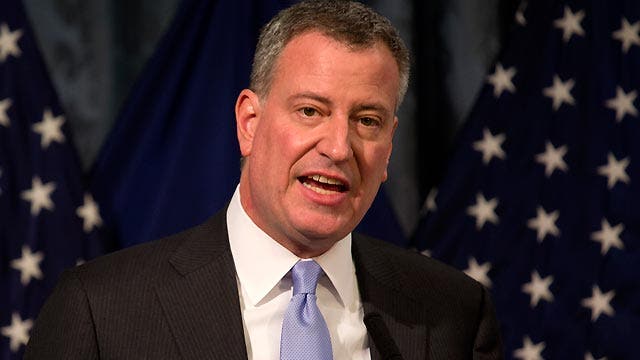700 kids suffer after De Blasio boots charter schools
Outrage and heartbreak follow when NYC Mayor de Blaso rescinds share space agreement with public charter schools
New York City Mayor Bill de Blasio took off the gloves in his battle with education reformers, rescinding an agreement for the city to share space with several public charter schools.
The move undercuts educators, parents and some 700 students at four schools, including Harlem Success 4, one of the public charter school movement’s top success stories, and two set to open in the fall. While agreements at those schools were rescinded, expansion of a fourth school was also blocked. The schools were to operate rent-free in city-owned facilities under deals backed by former Mayor Michael Bloomberg, an ardent supporter of charter schools.
But de Blasio, who is an unabashed critic of charter schools and won election with full-throated support of the United Federation of Teachers, said in a statement some of the city’s agreements to share class space will be voided. City officials said some of the deals that were stricken would have had elementary students attending class in high school buildings or forced cuts for public school special needs students.
[pullquote]
“As a public school parent, I am committed to a fundamentally different way of making decisions about co-locations, and that's a commitment shared by the longtime teacher now leading our school system,” de Blasio said, accusing the Bloomberg administration of having “rushed” the deals through in the “waning days” if his final term.
“ … today, we are taking the best possible path forward, rejecting those proposals that do not meet our values, and working with school communities on those proposals that can be implemented responsibly,” he said. “With these decisions, we are doing right by the most students and the most families.”
Charter schools receive taxpayer funds for operating expenses, but are independently managed. They do not get public money to build or lease their own facilities.
While dozens of charter schools’ deals with the city remain unaffected, the four affected schools had already hired principals and teachers, and were in the process of recruiting pupils. In addition to the Harlem school, the move leaves in the cold two affiliated schools run by the nonprofit Success Academy Charter Schools, headed by de Blasio’s former City Council colleague Eva Moskowitz.
“Explaining to students and families that they won’t have a school next year is the most heartbreaking thing I’ve done at Success Academies,” Moskowitz said in a statement. “No parent should have to go through this.”
A new Success Academy elementary charter slated to open in Queens for 200 kindergartners and first-graders was blocked, as was another K-4 Success charter school set to open at a high school near City Hall. Fifth and sixth grade students at Harlem Success Academy will no longer be able to attend middle school classes a public school and a fourth charter school, American Dream Charter School, will get less class space inside a Bronx public school, forcing it to drop enrollment by 25 percent.
Five other Success Academy schools were among more than 40 charter schools that were approved by the de Blasio-controlled Department of Education.
Charter school supporters blasted the move, saying the mayor had “essentially declared war on public charter schools in New York City.”
“This extreme action puts deBlasio, a progressive Democrat, at odds with not only President Obama, but most charter-supporting mayors and governors across the country,” said Andrew Campanella, president of National School Choice Week.
Nina Rees, CEO of the National Alliance for Public Charter Schools, called the decision “outrageous.”
“This is an unjustified attack on the city’s most vulnerable youth—93 percent of students in charter schools in New York City are minorities and 73 percent are low-income,” she said. “These children and parents don’t deserve to have the rug pulled out from under their feet.”
De Blasio's administration previously pulled $210 million in building funds from public charter schools and diverted it to pre-K expansion at traditional schools.
The teachers union hailed the decision.
“I’m glad the DOE has taken an important first step in vetoing some particularly troublesome pending co-locations," United Federation of Teachers president Mike Mulgrew said in a statement. "But the solution to Bloomberg’s destructive policies – including his two-minutes to-midnight attempt to lock in new co-locations on the new administration – is to give local schools and communities a real say on how their buildings are used.”





